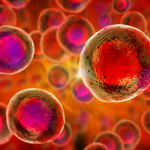- MS Australia has funded seven new MS research projects totalling nearly $150,000 in this year’s first round of incubator grants.
- These grants support novel ‘outside the box’ ideas, allowing the generation of preliminary data to support new concepts, enabling researchers to apply for larger grants in the future.
- The newly funded projects look at ways to improve quality of life for people with MS, how pregnancy affects MS, factors that can cause myelin damage, and better ways to detect damage to myelin and lesion changes.
MS Australia is delighted to announce the outcomes of the first incubator funding round of 2021 – awarded are seven new grants totalling nearly $150,000. Incubator grants provide funding for the early stages of innovative new research, intending to generate preliminary data needed to support future grant applications from a range of funding sources.
CEO of MS Australia Rohan Greenland emphasises the significance of these grants, “Historically, for every dollar invested in this funding program, the scientists have managed to secure an additional 27 dollars in subsequent funding, accelerating their areas of research.”
2021 Incubator Grants
The effect of foetal cells in maternal blood on MS during pregnancy
Dr Michael Zhong from Monash University will investigate how pregnancy affects disability and biological ageing in women with MS. He has found that pregnancy delays time to symptom onset, slows biological ageing, and protects against disability accumulation. However, the mechanisms underlying these long-term effects of pregnancy on MS outcomes are not well-understood. One possible mechanism is foetal microchimaerism (FMC), the presence and effect of foetal cells in maternal blood or other tissues. Foetal cells enter maternal blood throughout pregnancy and can remain detectable for decades. FMC may foster immune tolerance that may be beneficial in MS, and this could help explain the disparity in MS outcomes between women who have and have not been pregnant, and between sexes.
Developing an online nutrition education program for people with MS
Rebecca Russell from Curtin University will develop and run an online nutrition education program for people with MS. Evidence suggests that making healthier food choices is beneficial for people with MS and making dietary changes can give a sense of control over their disease. The free six-week program will be co-designed with people with MS and MS health professionals; and provide information on diet and MS. The findings will be used to improve the program and make it available in the long-term to people with MS across Australia in the form of a larger trial to test its effectiveness.
Blood markers of myelin integrity in MS
Associate Professor Todd Hardy from the Brain and Mind Centre aims to measure myelin fats (lipids) in the blood of people with MS and people without MS. Myelin is the fatty coating around nerves that allows efficient conduction of nerve impulses. When demyelination occurs, it is thought that trace amounts of lipids from the myelin spill into the blood. Should the amount of myelin lipids in the blood be higher in people with MS than people without MS, it may be possible to use myelin lipids in blood samples to determine whether there is ongoing damage to the myelin in people with MS.
This may be sufficient to indicate a failure of treatment and the need to switch their MS therapy. These traces of myelin lipids might also be used as markers of protection and regeneration of tissues of the nervous system in trials of new experimental treatments in MS.
Non-invasive brain stimulation for pain reduction in patients with MS
Dr Maryam Zoghi from La Trobe University will assess the long-lasting effect of a non-invasive brain stimulation technique on pain reduction and improving the quality of life of people with MS. For many people with MS, pain can be a significant problem. It can have a severe impact on activities of daily living and can be difficult to manage with medications. This treatment will be delivered with a battery-operated device which is very safe with very little side effects. Should this stimulation technique effectively reduce pain for several weeks, it may provide a new option for pain relief and pain management for people with MS who experience pain.
Plant-derived amino acid as a novel environmental risk factor
Associate Professor Alessandro Castorina from the University of Technology Sydney will investigate whether a non-protein amino acid (npAA) called Aze is added into myelin mistakenly in people with MS. In addition to the 20 amino acids used for making proteins, there are hundreds of npAAs produced by plants to protect them from being attacked by insects or to block the growth of competing plants (e.g. beets that produce sugar). Due to its structural similarities with the amino acid, proline, the npAA Aze from our diets can be mistakenly substituted for proline when a human protein is made. This can cause structural changes to components of myelin. It is possible that such changes could induce the immune system to mistakenly attack the myelin.
Using mini-brains to see how brain cells are affected by altered NF-kB
Dr Jun Yan from the University of Queensland is interested in a molecular pathway called the NF-kB pathway. This pathway doesn’t operate in the same way in all types of cells. Activating this pathway in immune cells causes inflammation, while activating this pathway in brain cells appears to protect nerve cells from damage. Dr Yan and her team have previously found that people with MS have a lower-than-normal level of a molecule, called IkB-a, that blocks the NF-kB pathway. This means that immune cells in people with MS are more activated and inflammatory. Currently, there is nothing known about how the lower-than-normal levels of this molecule seen in people with MS might affect the cells in the brain. Dr Yan will explore whether she can use stem cells to produce brain cells and brain organoids (“mini brains” in a dish) to look at the effects of low levels of this molecule in brain cells.
Artificial intelligence analysis of brain imaging
Dr Minh-Son To from Flinders University aims to develop artificial intelligence tools to analyse magnetic resonance imaging (MRI) scans to assist clinicians and radiologists with decision making. The main aspect of neuroimaging to be addressed is detecting lesion changes on images taken at various intervals over an extended period. This is because the appearance of new lesions or evidence of new activity can influence the choice of therapy. Once Dr To has validated this on a retrospective dataset, he will develop a software interface for deploying this tool in a clinical environment. This will enable future prospective trials to take place.
The standard of applications was extremely impressive, reflecting the high calibre of science underway in Australia. It is vital that our fundraising efforts continue, to ensure we maintain the momentum of quality MS research towards our common goal of a world without MS.
For more information about these grants and other research projects currently funded by MS Australia please click here.


